That might seem like a strange question for us to be asking, and we will admit that we already know the answer but, do you?
If you’re a resident of Cambridge (or, dare we mention it, the other place), then you almost certainly know what punting is. If you’re a sometime/regular visitor to this city and you’ve read our definitive history of punting then you should also already know (unless, of course, you have a terrible short term memory).
However, if you have never been to Cambridge before, or perhaps have arrived at this website seeking answers to this very question, fear not because we are here to give you the answers.
It’s not sport related
Let’s get a couple of things sorted from the off – if you’re an avid Super bowl or Australian rules football fan (no, we’re not going to try to explain that to anyone), or someone who likes the occasional flutter on the horses you’re probably in the wrong place. Punting is going to mean something entirely different to you.
However, those discrepancies aside, if you’ve ever visited Cambridge, or live in the city, or have seen pictures of people gently propelling up and down the river Cam, you might have some sort of idea of what punts are in this context.
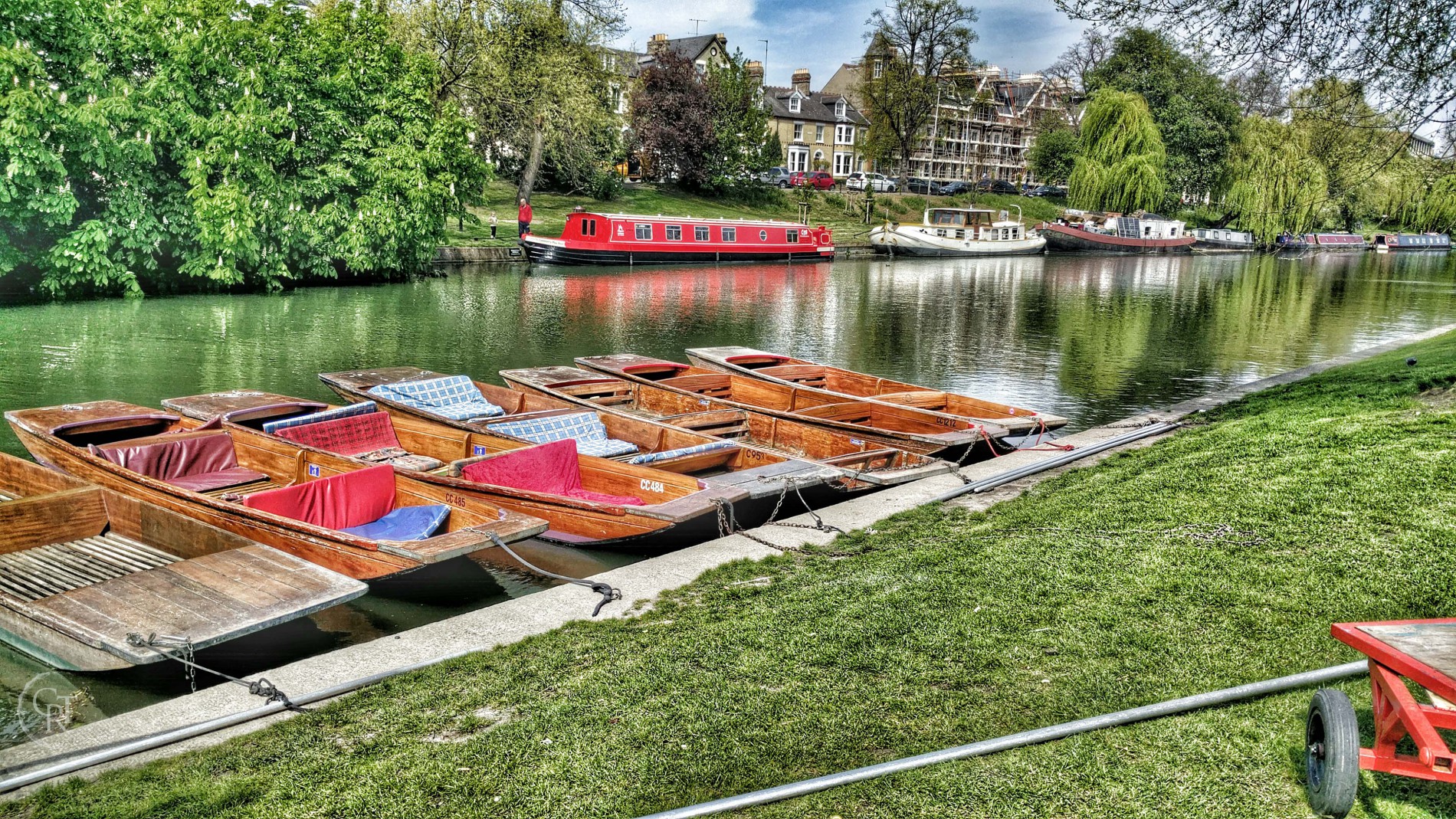
These are punts
It’s got nothing to do with Venice
We need to clear one thing up right away. Punts are NOT gondolas, nor do they bear more than a passing resemblance to them. There has, occasionally, been the odd ice-cream selling punt on the Cam (and we were responsible for one of those, but that’s a story for another time) but, largely, they are very different pursuits. However, for the sake of explanation, we will acknowledge that there might be some similarities:
- both are a type of boat
- both are (generally) made out of wood
- both tend to be passenger craft, propelled by a person who stands on one end
But seriously, that is where the similarity ends. Punts are flat bottomed boats and propulsion is done by pushing off the river bed using a big, long pole – of around 15 foot in length (5m if you’re using the metric system).
They are designed to operate in fairly shallow, slow moving water. It’s actually relatively easy to get out of your depth (literally) when punting, as anyone who’s ventured onto the upper river towards Grantchester, or even strayed too close to the ‘beach’ at Magdalene college can attest to.
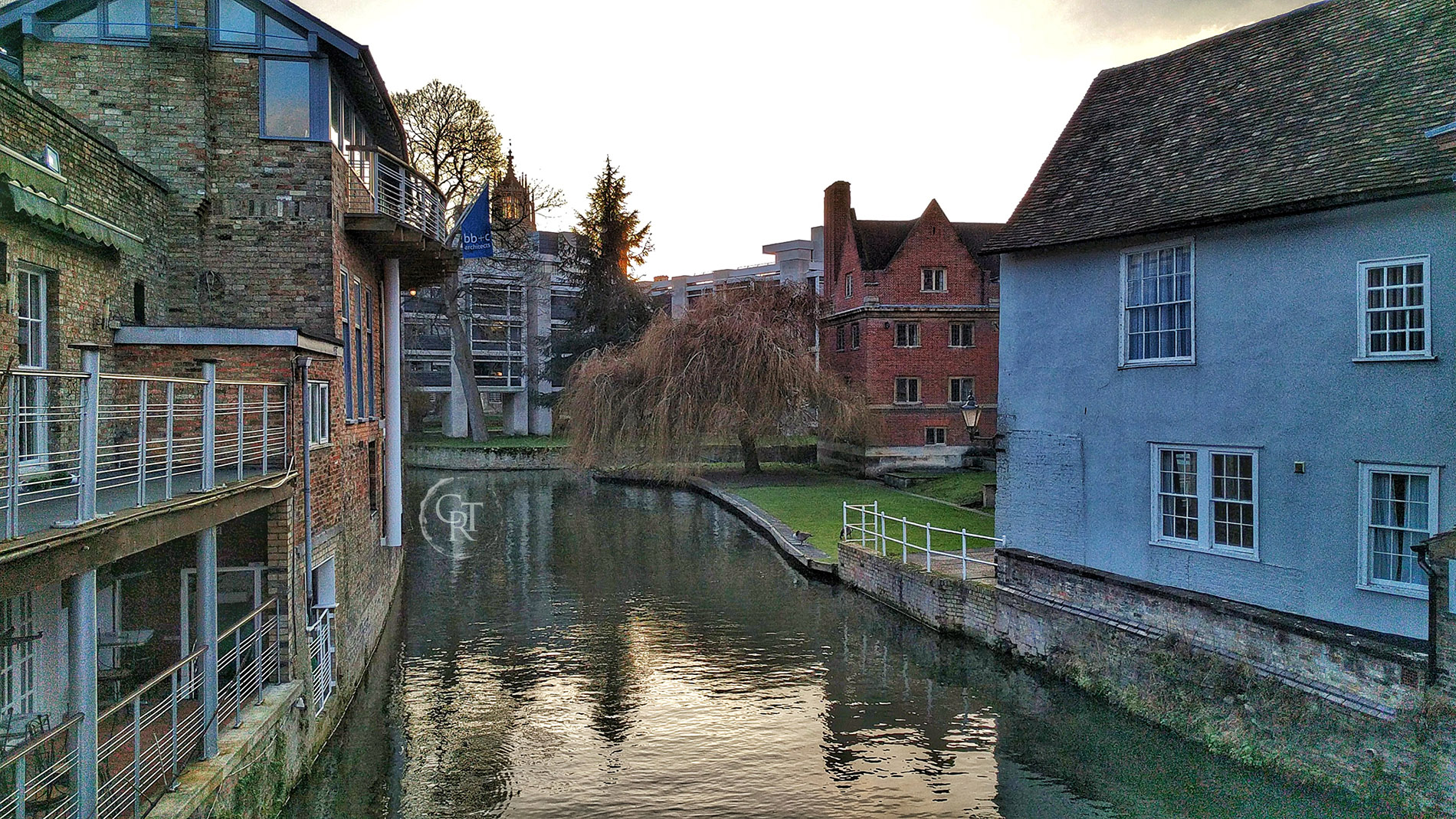
Magdalene college beach, on the right. Here be deep water
As for driving a gondola (gondoling?), we can’t really comment on it as we’ve never tried it, but it looks tricky. For starters you need to be able to sing, and also possibly speak Italian, and we can’t do either of those things. We think it involves some kind of crazy paddling a bit like being in a coracle, but anyway… we’re getting off topic.
Is it difficult?
Lots of places in the UK have rivers or boating lakes and, in those places, you can often hire rowing boats; pedalos; those crazy looking plastic swan things; occasionally motorised boats, etc and lark about on the water. In most circumstances you can do that with no prior experience or discernible skill, and not only survive the experience but actually enjoy it (although as I write this am I reminded of a kayaking trip in the south of France which was borderline terrifying for some of those involved) without fearing the risk of harm or personal injury.
However, if you’ve ever seen what the river Cam gets like on a busy summer’s day then you’ll know that navigating a self-hire up and down the river (that’s what it’s called when you take your life in your hands and decide to be the punter instead of the punted) can be a bit of a white knuckle experience.
Make sure those knuckles aren’t gripping tightly to the side of the boat though, or you could lose a finger (seriously, I’m not even joking about that). Here’s some video evidence from a not particularly busy day at a narrow point in the river (not our punt station though):
The people in the smaller boats are more often that not those doing it themselves. Now, don’t get me wrong, I’m not trying to put anyone off having a go – if you’ve ever stood and watched the professionals going up and down the river you could be forgiven for thinking that it’s easy but it would be irresponsible of me not to point out the potential pitfalls.
First of all, the smaller boats, that are hired out to members of the public, are by their very nature more difficult to drive than the ‘ferries’ that you’d typically be sat in if you take a chauffeured tour.
They are narrower, which makes them wobblier. It’s a very strange experience for the uninitiated – standing on the back of a punt and trying to grip on with your toes, but you may well find yourself doing just that (without even realising) as you struggle for balance.
Don’t be tempted not to stand on the deck though. If you stand inside the boat, in front of the deck, it’s much more difficult to move your feet to correct your balance if you need to. Plus you would be doing a disservice to the ladies of Girton college, who, made the Cambridge style of punting fashionable by standing on the rear deck to show off their ankles (allegedly).
But enough of that, this isn’t intended to be a lesson on how to punt, we’ll cover that another time. For now, just remember, if you see someone making it look easy, it doesn’t necessarily follow that it is easy. Want more tips on how to get the best out of your punting experience? We’ve got you covered.
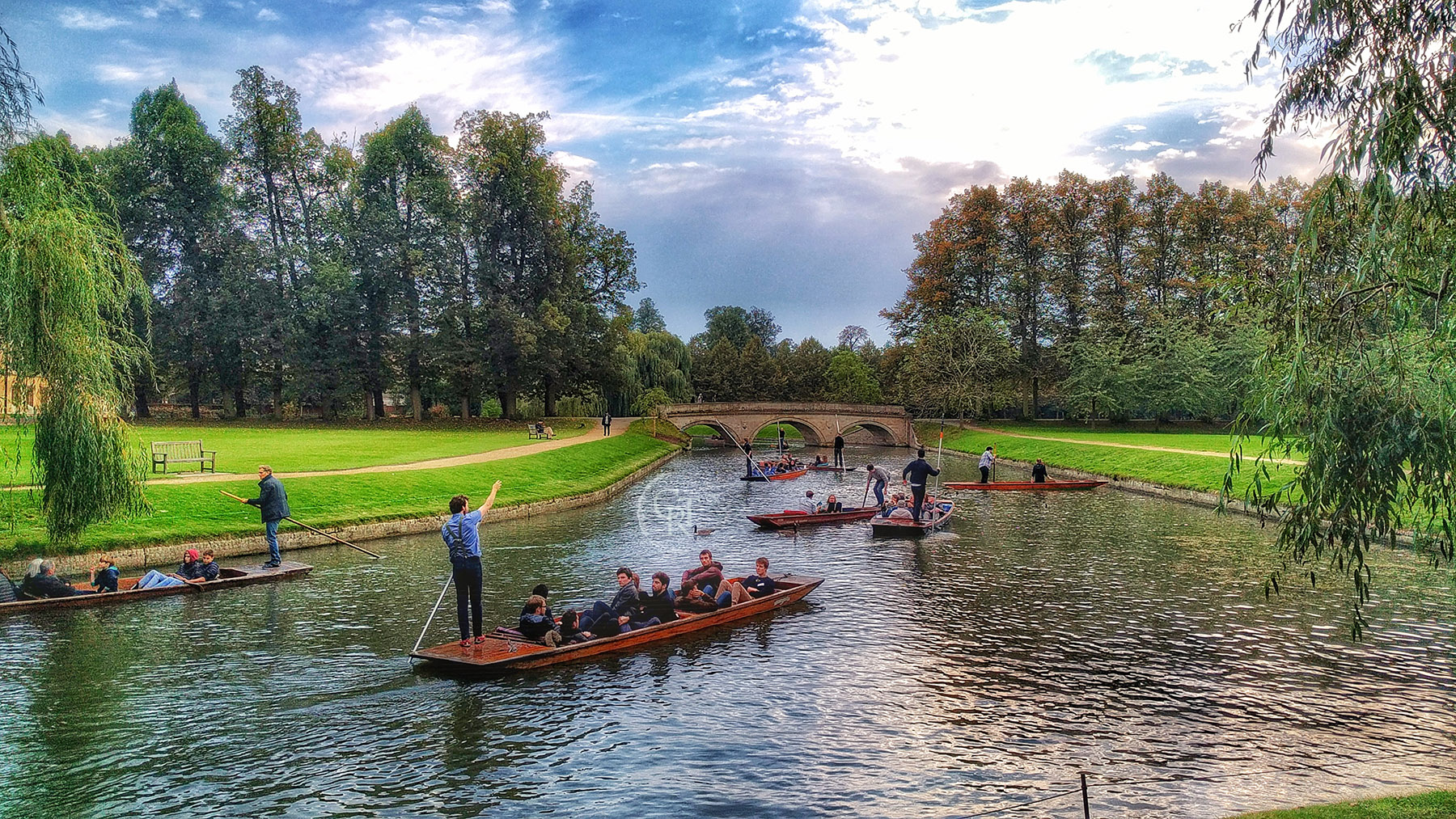
This. Is. Punting.
Have we answered your question yet?
Let’s just recap and make sure that we haven’t missed out anything important:
- punt = boat
- punting = being in boat, going along the river
- punter = person doing the punting
- puntee = possibly not a real word
- pole = tool by which punt is propelled
- is it difficult? Yes
- is it fun? Yes
- is it considered a sport? No but there are occasional punt races. Not yet featured in the Olympics though
Hopefully that’s addressed all of the key points, but if you think that anything pertinent has been missed, then please leave a comment below or get in touch.
If you would like to do some punting, then that is of course something that we do and you can be sure that you’re safe in the hands of a professional punter, and if I haven’t entirely put you off doing it yourself, you can probably persuade your chauffeur to let you have a go – under his or her expert tutelage.
Build Your Own Punt?
Now that you know what a punt is and (possibly) how to drive one, if you’re feeling really adventurous you could use these plans to build your own punt. Good luck, maybe we’ll see you on the river soon… just make sure that you’re standing on the proper end.


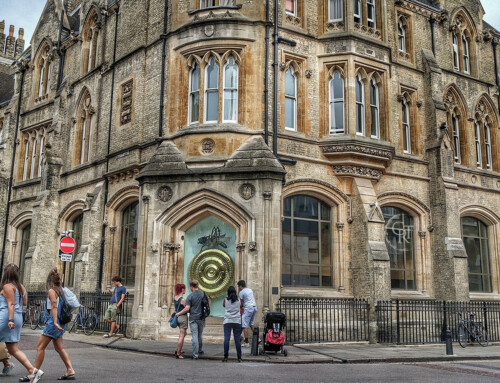
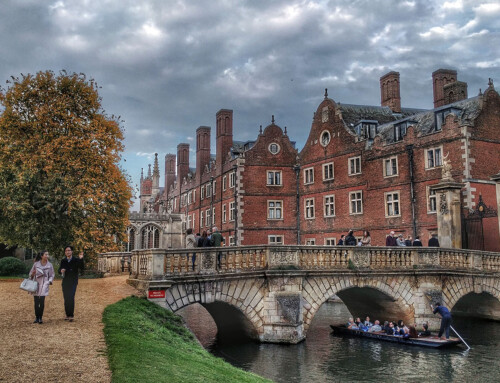



Nice